Swiss president: ‘Switzerland is a land without a hidden agenda’
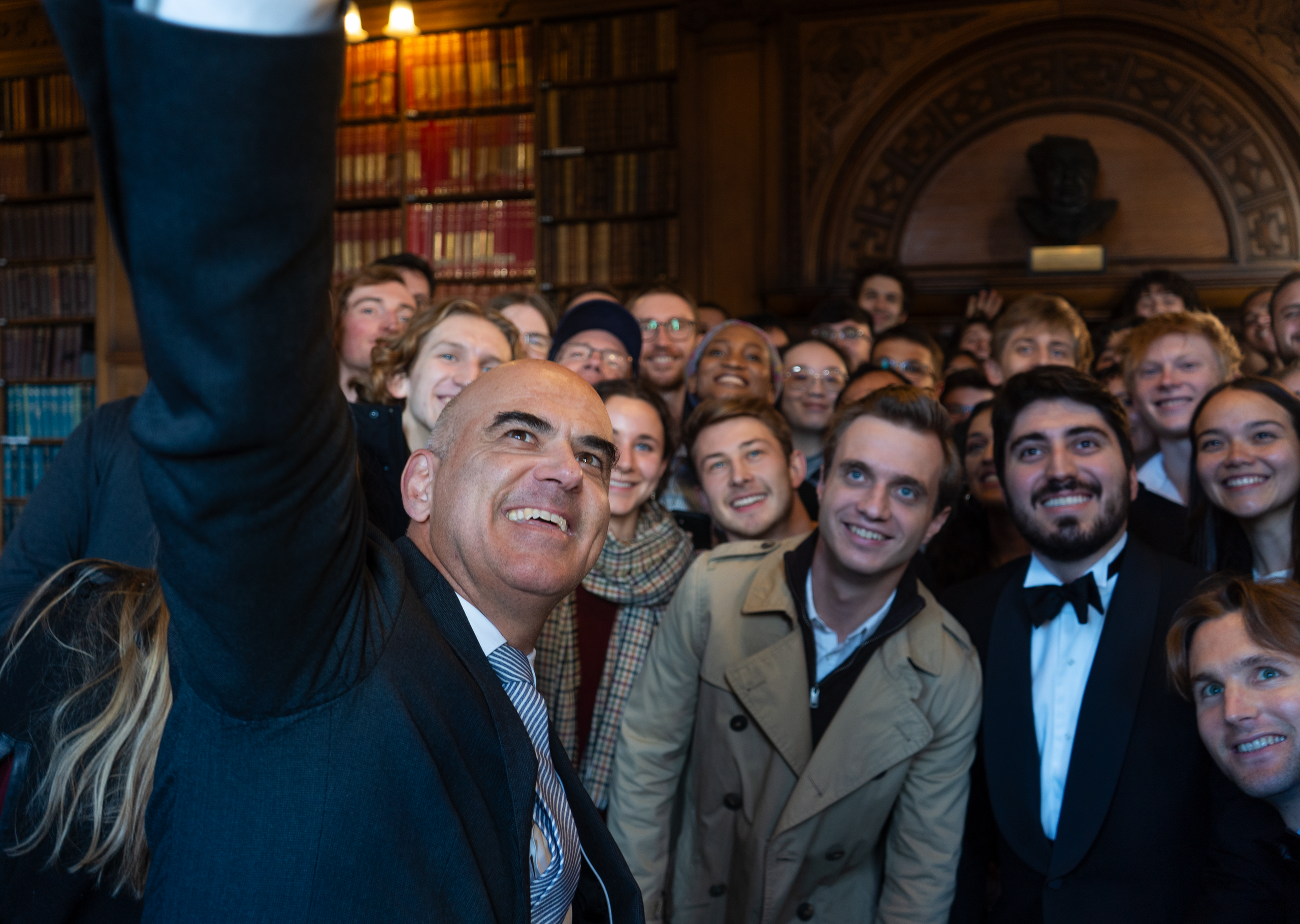
Switzerland’s position of neutrality is still understood around the world, declared outgoing Swiss President Alain Berset in a recent lecture at the University of Oxford. In an interview with SWI swissinfo.ch, he explains why Switzerland’s role as an international platform for dialogue is not obsolete, especially in the context of an increasingly polarised world.
SWI swissinfo.ch: During your time as president, you oversaw a number of important events: Russia’s war against Ukraine, Swiss membership of the United Nations Security Council, the war and regional tensions in the Middle East. What were the greatest challenges that you faced?
Alain Berset: You are right. We are living at a time in which crises overlap with one another. However, the acceleration of these crises began some time ago, most recently with the Covid-19 pandemic.
I believe the biggest challenge in this context is always the same: we can’t lose sight of maintaining the cohesion of society.
Crises often result in more inequality, and the strengthening of societal tensions. In times of crisis, it is particularly important to pay attention to the cohesion of society.
SWI: You were president twice, in 2018 and 2023. How did your presidential terms differ from one another?
A.B.: The big difference actual lay in the time between the presidential terms: the pandemic. Looking back, I am happy that my team and I were managing the crisis at a time when I already had eight years of experience in the department. That was a decisive factor. This year I have also benefited from my experience in politics, in the Federal Council, and from my previous term as president in 2018, for example in my work on the Security Council.
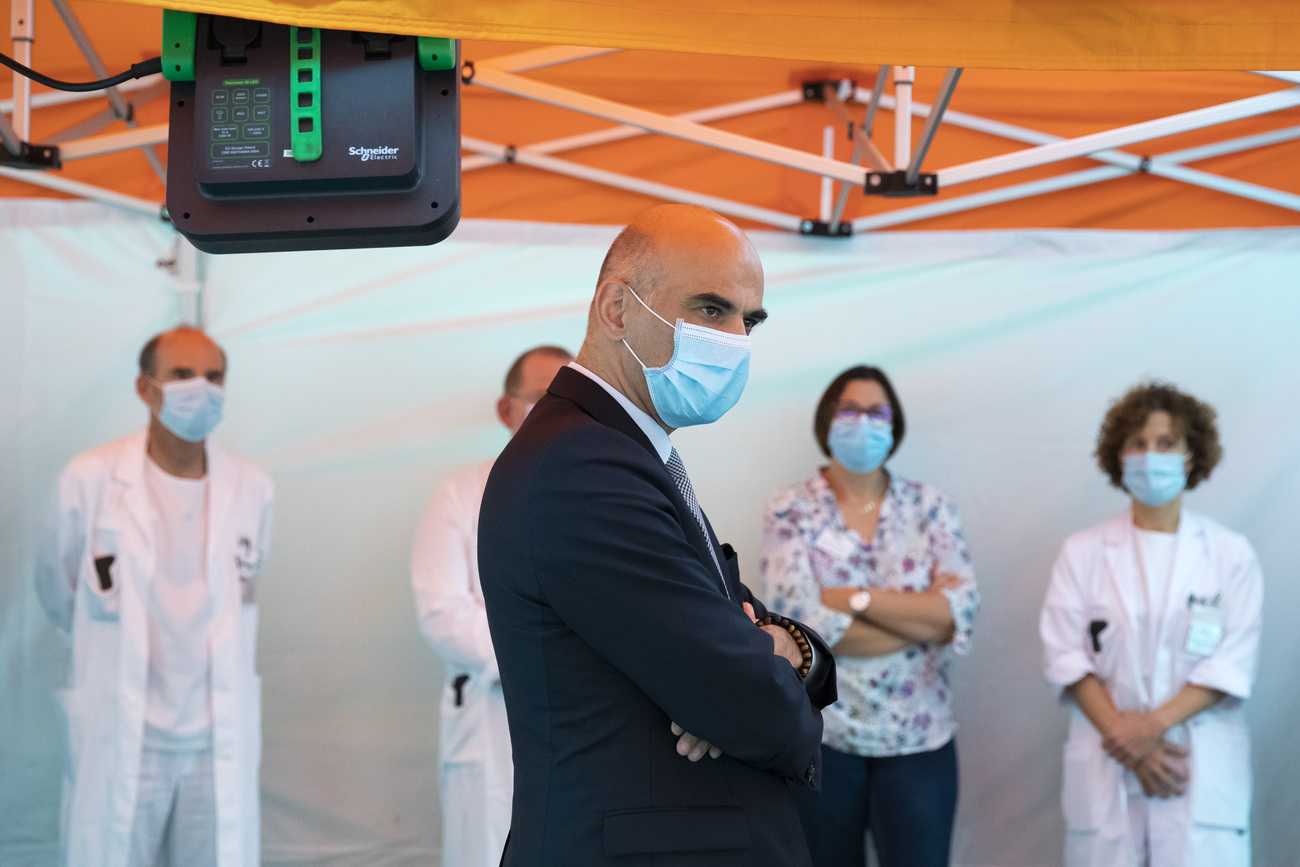
SWI: In your time in politics, what have you learnt about yourself?
A.B.: The pandemic taught me an unbelievable amount, also about myself. I never thought that I would be able to withstand such pressure and do so much work. As a cabinet minister, you’re used to a lot, but the Covid crisis amplified everything.
It was a relief to know that I was able to deal with it. But I was also relieved that the crisis didn’t go on for much longer. Once you’ve gotten through something like that, other stressful situations become more bearable.
However, 2023 has also been a special year. There has been the Credit Suisse crisis, the Russian war of aggression against Ukraine, and now the situation in the Middle East following the terror attacks by Hamas. The entire year has been shaped by many insecurities and uncertainties. It’s important to maintain cohesion, even in these situations.
SWI: You have been a member of the Swiss government since 2011. In June, you announced that you would not be standing for re-election. What will you miss about your time in office?
A.B.: I am very much looking forward to life after my term as a government minister. I will miss the teamwork. I am no lone wolf; I have an amazing team. I have always found it exciting to work in a team, and it has taught me a great deal.

SWI: Between 2002 and 2022, the population of Swiss citizens living abroad rose by 34%. What does it say about Switzerland, that so many of its citizens live outside its borders?
A.B.: It’s a part of the Swiss tradition. We are a relatively small country in the middle of Europe, without an abundance of natural resources. Everything that we’ve achieved has been achieved through our own efforts. However, this includes cooperation and dialogue with other countries, and other peoples. We are actually a cosmopolitan and open nation.
Switzerland has nine million inhabitants, and around two million people cross the Swiss border every day. That’s almost a quarter of our population. That tells you a lot about the close ties we have with other countries. Plus, a large proportion of the 800,000 Swiss citizens living abroad live in the EU.
SWI: What is Switzerland doing to stay in contact with its citizens living abroad?
A.B.: With digitalisation and the accompanying tools for communication, there are entirely new opportunities. For example, swissinfo.ch plays an important role. In addition, Switzerland is well represented through its embassies and consulates almost everywhere.
Today, we have the means to be in close contact with the Swiss abroad, also through our closeness with Europe and our bilateral agreements. The free movement of people is also important. At the same time, not all the Swiss abroad feel the need for contact with Switzerland, and that is also legitimate.
SWI: Of the over 800,000 Swiss citizens abroad, only 220,000 are registered to vote. Of those, only 25% actually end up voting. Why is Switzerland unable to convince the Swiss abroad to go to the polls?
A.B.: It’s not for me to judge. However, it demonstrates that there is a big interest to have a say where you live and work. I previously worked in Fribourg’s Constitutional Council, where we always tried to ensure that as many people as possible who were affected by Fribourg’s politics were able to have a say, including people from abroad.
If it were easier to vote in Swiss elections from abroad, for example with e-voting, that would certainly help.
SWI: What do you see as the most important contribution of the Swiss diaspora to Switzerland?
A.B.: It is nice when the Swiss abroad maintain a connection to Switzerland. It never ceases to amaze me that you can go almost anywhere in the world and you always come across Swiss people.
If they have an affinity with Switzerland, then they also promote an image of Switzerland abroad, which is a positive for all of us.
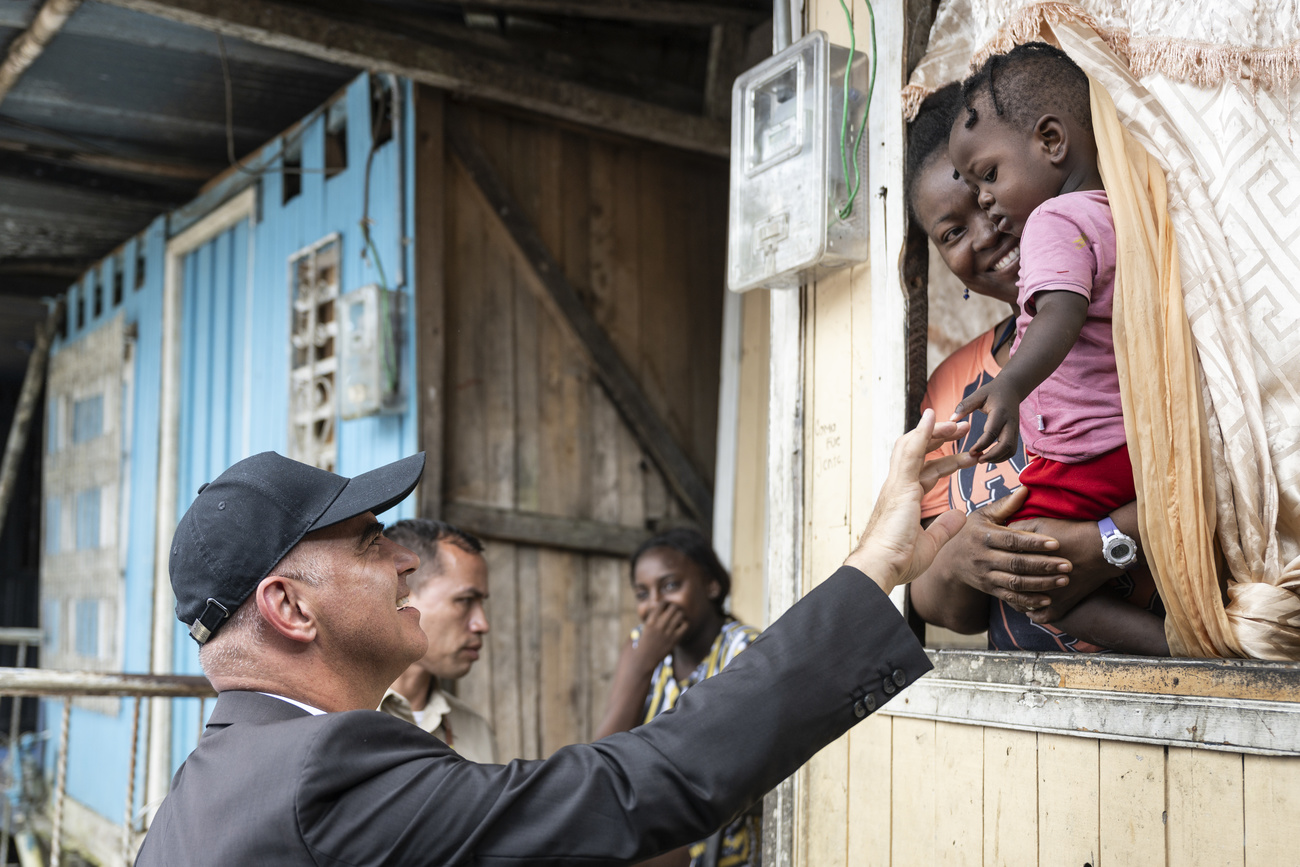
SWI: The title of your lecture in Oxford ‘Switzerland in a fractured world’, refers to the increasing fragmentation and tensions around the world. What role can Switzerland still hope to play in a ‘fractured world’, that is increasingly shaped by great power politics?
A.B.: We must remain modest. Firstly, one thing is certain: our institutions give us strength. This year, we are celebrating the 175th anniversary of our constitution. This means we have had 175 years of continuity. In a rapidly changing world, stable institutions and the adoption of a long-term perspective can help us immensely.
Secondly, Switzerland plays a special role on the continent via ‘International Geneva’, the International Committee of the Red Cross (ICRC), our position as the guardian of the Geneva Conventions, and our strong commitment to multilateralism.
These are also part of the institutions that have made Switzerland the country that it is today. Switzerland is a land without a hidden agenda, and thus it can serve as a platform for dialogue, mediation, and for peace. That is the contribution that Switzerland can make.
SWI: One of Switzerland’s roles has been its membership of the UN Security Council. How do you evaluate Switzerland’s engagement therein? Are the limits of the institution currently being demonstrated?
A.B.: Switzerland has been a member of the United Nations for roughly 20 years, and it was always clear that if we were going to join the UN, we were going to be a fully-fledged member. That means participating wherever we can help.
The candidacy as a non-permanent member of the Security Council was initiated a long time ago. At that time, nobody could have imagined that our membership would coincide with a war in Europe, and now such a worrying situation in the Middle East.
It is true that the Security Council is under a lot of pressure. If a permanent member wages a war of aggression against another member, as Russia has done against Ukraine, the institution will quickly become blocked because of its veto powers. Reforms are necessary, and difficult, but they are not entirely impossible.
Lichtenstein, for example, was able to initiate an interesting reform, in which veto-holding powers would be forced to explain their use of a veto in front of the UN General Assembly. These initiatives help.
Of course, this won’t help to solve the fundamental problems. But what is the alternative? At least multilateral institutions such as the Security Council ensure that there is dialogue between states.
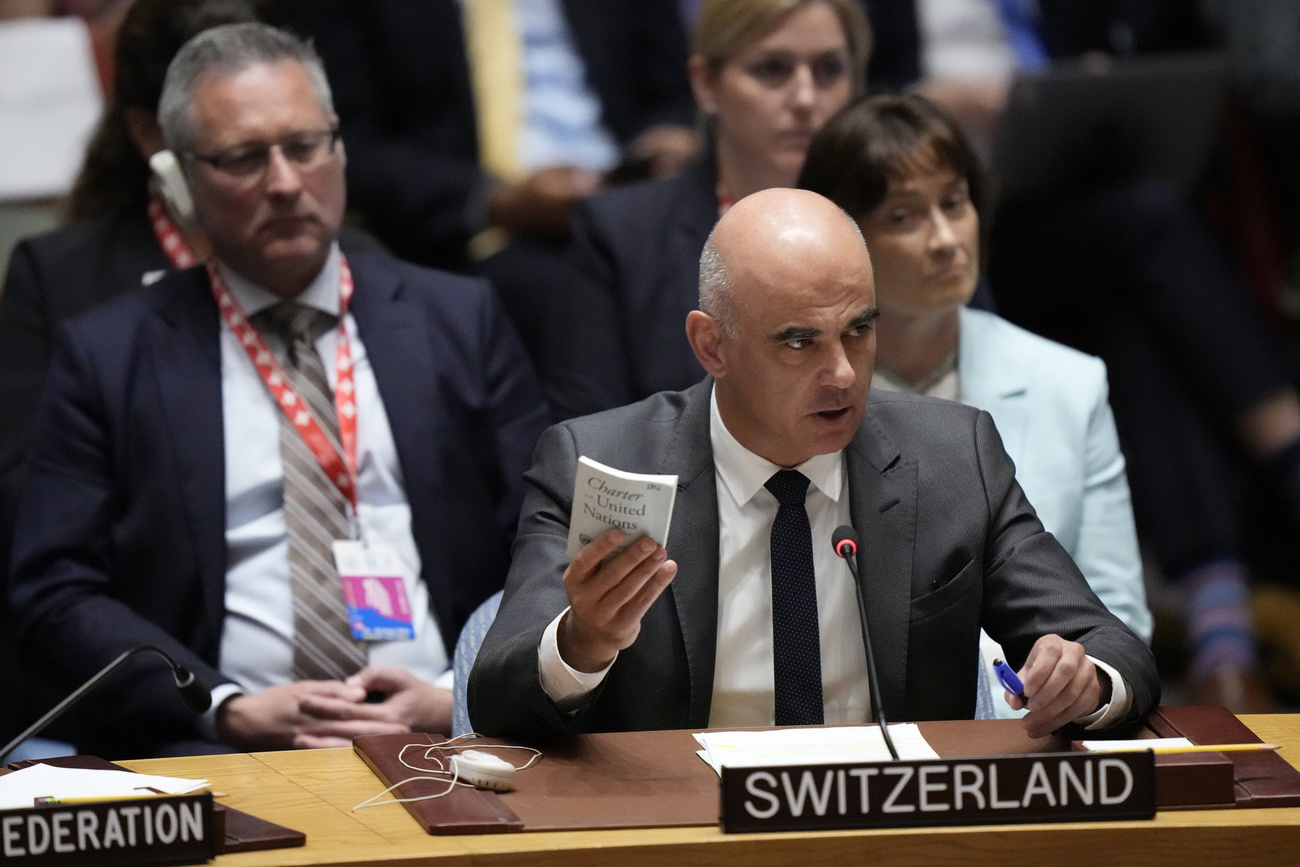
SWI: The adoption of sanctions against Russia was portrayed as a departure from Swiss neutrality by journalists, analysts, and even other states. Russia, importantly, no longer views Switzerland as a neutral party, and has worked to block Switzerland from playing a role as a platform for Russian-Ukrainian mediation. Is Swiss neutrality still understood on the global stage?
A.B.: Russia’s war of aggression against Ukraine flouted all international rules, according to the UN charter. It was a brutal shock for the whole continent. When there’s a country that flagrantly violates international rules, you cannot just go back to business as usual. This is why Switzerland has clearly condemned the war of aggression from the beginning, and adopted the EU’s sanctions in full.
It is important that Switzerland does not become used as a place to circumvent international sanctions. Had Switzerland not adopted these sanctions, that would very quickly have become the case. That would have certainly not been compatible with neutrality.
SWI: Is it still understood on the world stage that Switzerland is still neutral? If not, then what needs to be done?
A.B.: I can only speak from my experience. When one explains the Swiss position, it is understood, including Switzerland’s position on arms exports. Switzerland’s strengths do not lie in its weapons exports. Switzerland’s strong commitment to multilateralism and international law is also generally valued.
That is where Switzerland’s strengths lie. In Ukraine, for example, Switzerland can provide support for demining. Other countries are engaged according to their strengths.
SWI: You have been working in politics on a governmental level for over ten years. What are the global political trends that you have observed during this time. Are you worried or hopeful about the future of geopolitics?
A.B.: Fundamentally, I am an optimistic person, but I am not naïve. I think we still need a lot of engagement. What worries me is the increase in ‘black-and-white’ thinking. On a social and political level, we need the recognition that many things are complicated, and require a nuanced approach.
The political culture of open debate, where people interact on an equal footing even if they disagree with one another, is central for the development of society and humanity.
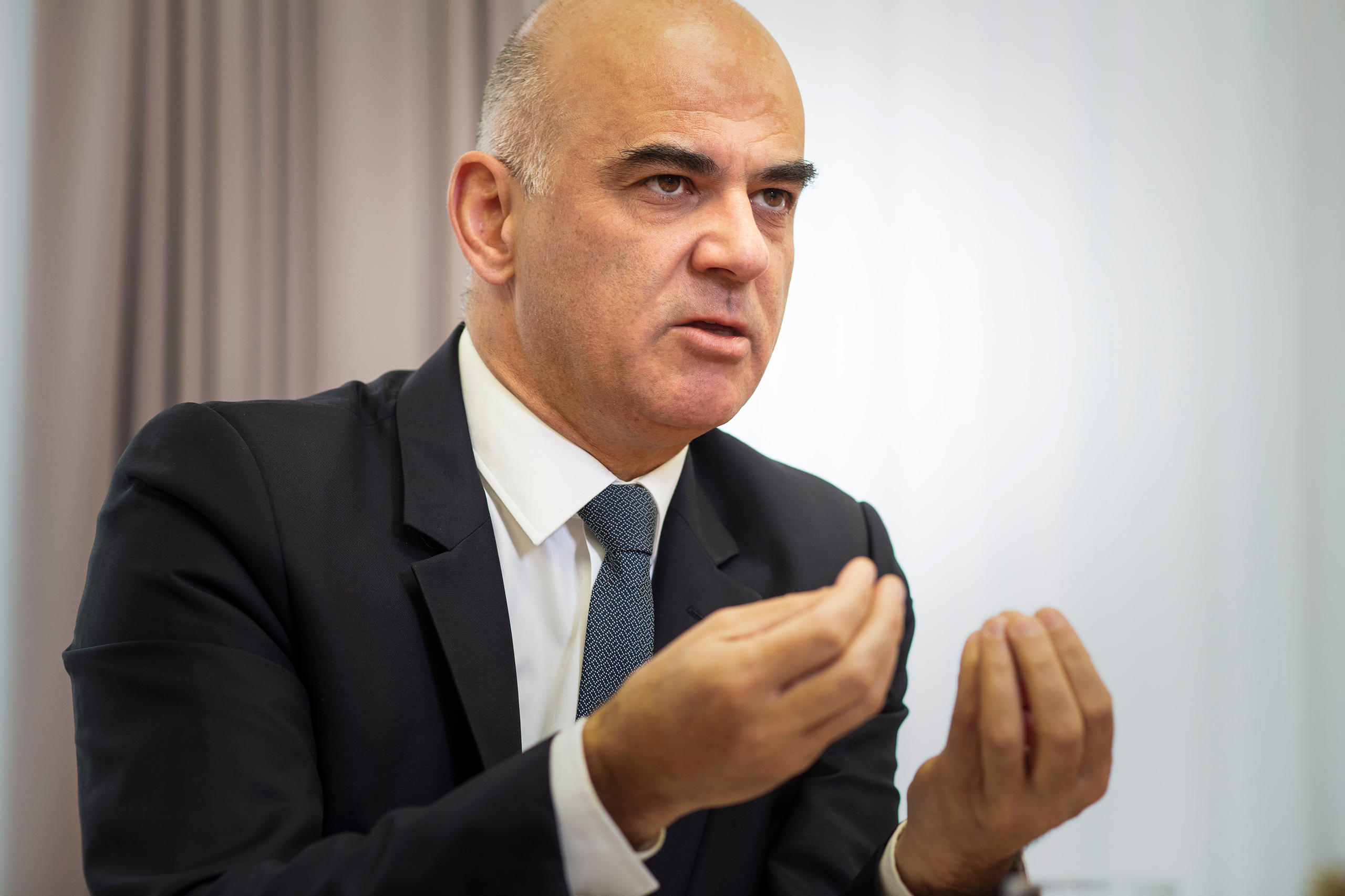
More
Alain Berset: ‘I faced unprecedented brutality’
Edited by Marc Leutenegger. Translated from German by the author.
* This interview was conducted on the 27th of October, during a visit by President Alain Berset to the Oxford Union.

In compliance with the JTI standards
More: SWI swissinfo.ch certified by the Journalism Trust Initiative

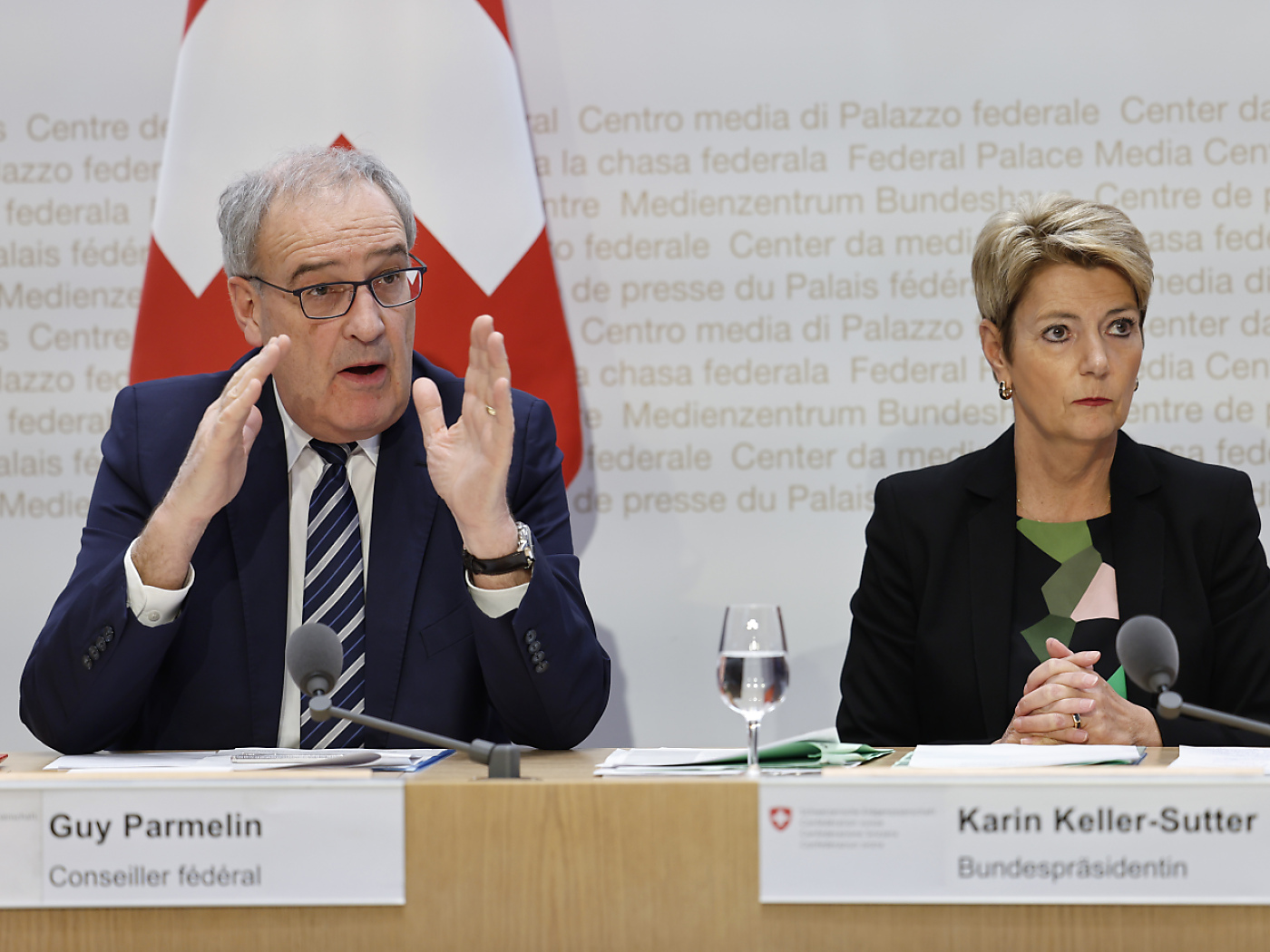







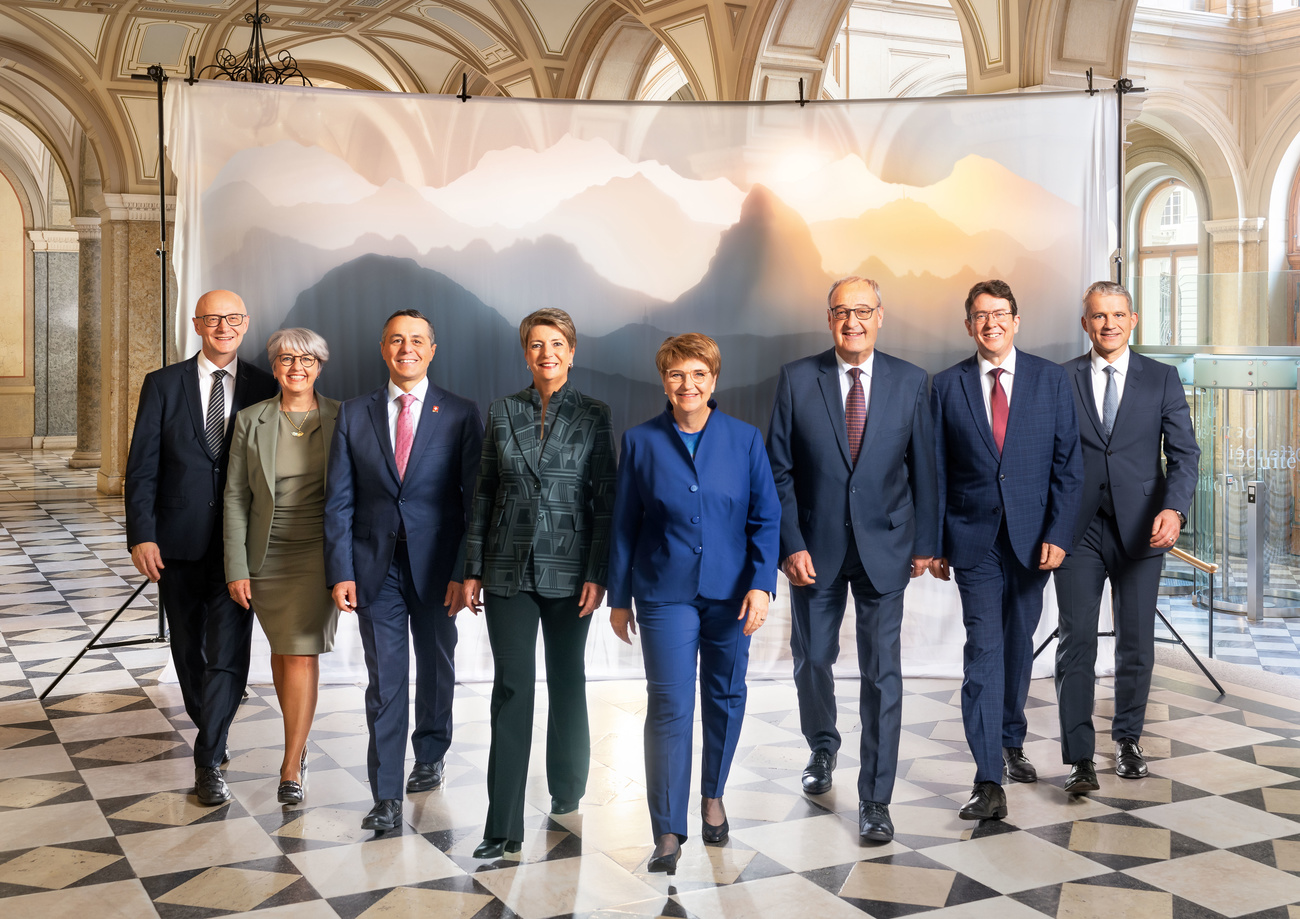
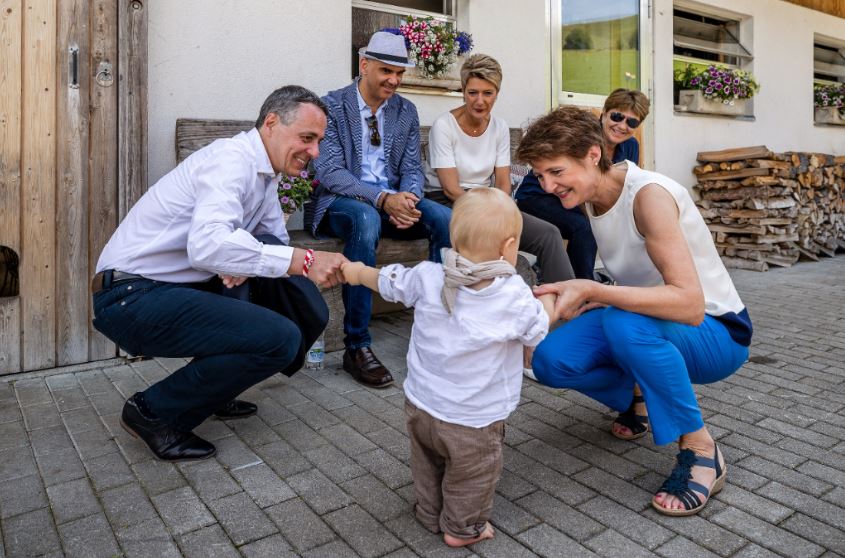
You can find an overview of ongoing debates with our journalists here . Please join us!
If you want to start a conversation about a topic raised in this article or want to report factual errors, email us at english@swissinfo.ch.